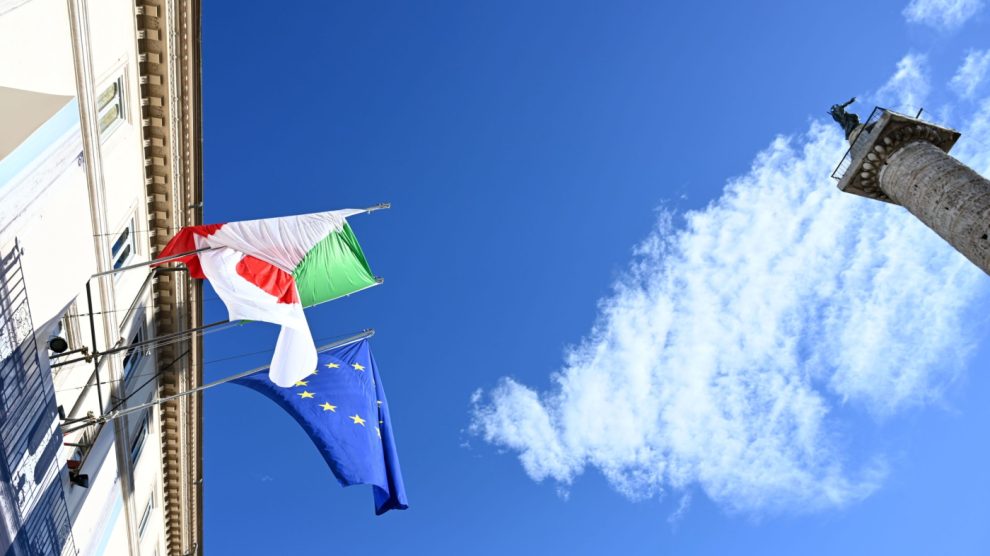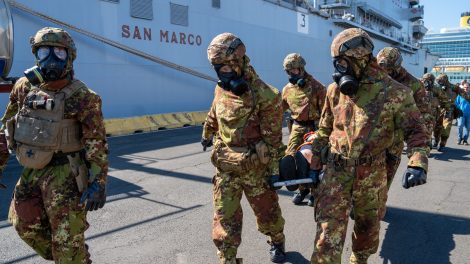Bonding over defence. Last week, Italian Prime Minister Giorgia Meloni and her Japanese counterpart Fumio Kishida elevated their countries’ ties to the rank of “strategic partnership”. A bilateral Foreign-Defence consultation mechanism will soon be launched and is expected to get going later this year, as reported by Decode39.
- The breakthrough follows a key agreement, signed in early December by the governments of Italy, Japan and the United Kingdom, to develop a sixth-generation combat aircraft under the aptly-named Global Combat Air Programme.
- Defence Minister Guido Crosetto told us this “can be an important driver for trade and economic relations between Rome and Tokyo,” as the GCAP “will have important spin-offs on the production sectors, including the civil sector, and on research and development.”
Looking up, looking ahead. The aerospace programme has thus become one of the main pillars of the Italian-Japanese strategic partnership. And its success can accelerate intelligence cooperation as well as military and industrial cooperation. Common external threats can foster further unity; in fact, it’s highly likely that the GCAP will become a target of intelligence operations by Russia and China.
The Intel Committee is on it. COPASIR – the parliamentary committee acting as a watchdog to Italy’s secret services – considered the matter of cooperation with Japan’s intelligence bodies multiple times over the past legislature and studied its inner workings, including identifying possible shared areas of cooperation.
- “Japan has a long tradition of strategic information sharing, so much so that it is almost unique in the world. In fact, all subjects – public and private – operate in synergy according to a common strategy and share public and/or confidential information,” reads a COPASIR activity report from early 2022, noting this “translates into the use of intelligence at the service of an ‘offensive’ industrial development policy, aimed at supporting the overall economic development of the country.”
- The Japanese intel system hinges on a “strong inter-relationship” between the various components of the political and economic world, resting on a network of ministerial, professional, scientific and industrial relations rotating around the Ministry of Economy.
- The whole of society, COPASIR wrote, “is called upon to play an active role in the collection and distribution of information, with a full identification between individual and collective needs [centred on] economic development, especially in the computer, telecommunications, optical, aerospace and electronic sectors.”
A widening gaze. In a July report centred on the development of common European defence and intelligence cooperation, COPASIR touches upon Rome’s involvement with the Five Eyes – i.e. a group of Anglophone countries (Australia, Canada, New Zealand, UK and US) that have “an agreement to share sensitive technologies allowing for the exchange of material of the highest quality and classification.”
- There are further levels of intelligence sharing – Nine Eyes and Fourteen Eyes – in which Italy participates. Over time, there have been various proposals to expand the Five Eyes, most recently to Japan, Germany, Italy and South Korea, explained the commissioners, highlighting Rome’s possibility to access “an extremely qualified level of both information and intelligence activities.”




